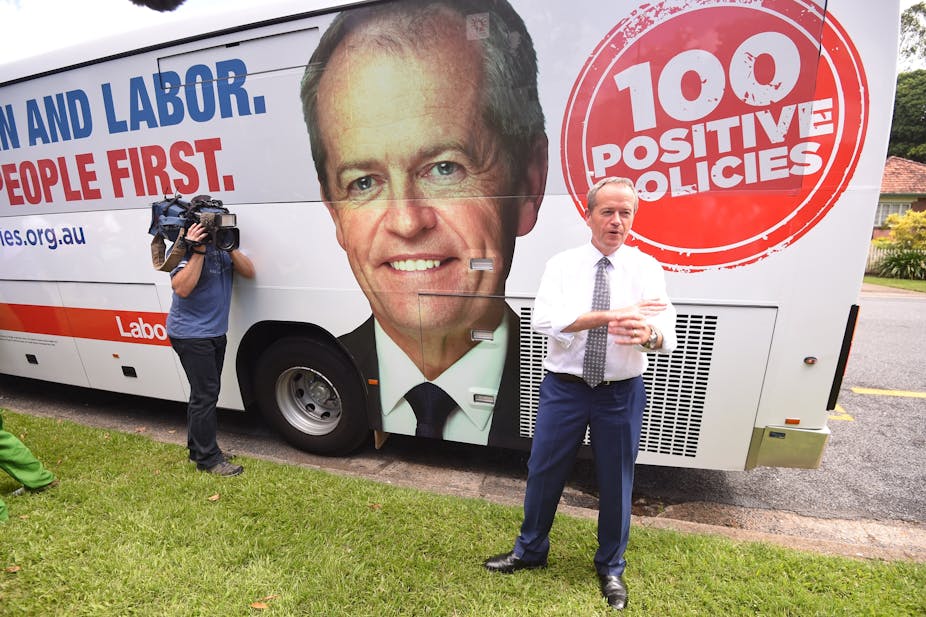Perceptions about the two major political parties are well entrenched in the electorate psyche. The Liberal/National Coalition is consistently seen in the polls as “better economic managers”, while the ALP is consistently seen as “better to manage education and health”.
Not surprisingly, their campaign slogans hope to cement such perceptions – the LNP with “Jobs and growth” and the ALP with “We’ll put people first”. However, these slogans can often - inadvertently - be undermined by circumstances, or the policies that are announced, in a way that works only to highlight the most conspicuous electoral “weaknesses” of the parties.
I vividly remember the 1990 campaign of Andrew Peacock vs Bob Hawke. Andrew had just usurped the leadership from John Howard in a ruthlessly executed coup, another round of Peacock vs Howard disunity.
The Liberal campaign slogan was “The answer is Liberal”, against the ALP slogan “Bob Hawke for Australia’s future”.
Hawke responded to the Liberal slogan with the comment: “If the answer is Liberal it must have been a bloody stupid question”.
Ironically, most won’t remember, but the first cut of the Liberal slogan was actually “Andrew is the answer”. As soon as I heard this I contacted the Federal Secretariat with the remark; “If Andrew is the answer, what the hell is the question?”
Importantly, the Liberal (and indeed ALP) polling behind the choice of slogan provided the clear message that “disunity is death in politics” and “if you can’t govern yourselves, you can’t govern the country”; reflecting, of course, the disunity in the Liberal party that had led to the coup.
For Peacock, or even Liberal, to be “the answer” risked an ALP focus on the disunity, which Hawke used with devastating effect in the campaign.
Closer consideration of the Government’s “Jobs and growth” slogan immediately asks “how?”. In turn, it focuses attention on the (unfunded) corporate tax cuts, running out over 10 years, clearly highlighting Malcolm’s vulnerability - namely that the cuts are concentrated to the benefit of “the top end of town”, to the “wealthy”, and confirming the ALP claim that Malcolm is “out of touch”.
When this is combined with the fact that no-one with an income under $80,000 gets any tax cut and, indeed, some are worse off due to previously announced cuts to key benefits, and the further delay to childcare benefits, and so on, it’s easy to argue “inequity” and “unfairness”.
Similarly, the unfolding of the education and health policies behind Shorten’s “People First” slogan, all involving significant additional spending commitments, focuses attention on the ALP’s past poor economic management, due to high spending/high taxing/large deficits, and so raise the question of “where’s the money coming from?”
Indeed, Shorten has already given Turnbull his first “Gotcha moment” by declaring that one of his new spending initiatives should be added to the “spend-o-meter”. All his initiatives will now be so metered.
This process will be particularly compounded by the ALP’s silence on measures from previous Budgets, that are counted in the Government’s budget figuring, (on which they rely), but which the ALP previously opposed, as well as their reliance on the revenue from the Government’s proposed corporate tax cuts, that they have recognized as unfunded through to the mid 2020s.
So, expect the remainder of the campaign to be dominated by claim and counter claim - I can be believed, my opponent can’t - mine is bigger than yours- and so on. Each will also try to break out with some “evidence/argument” that disproves the “lie”, as well as hoping to deliver more “left-field” policies to move them on beyond their mere slogans.
However, in the end, barring some significant stuff-ups, it will come down to a question of “trust” - which party do you trust to deliver against what they promise?

